Editor’s Note: This story contains reflections on death and dying. No small amount of tears were shed in the writing process. Thank you, Linda, for digging deep into your soul to share this journey of love and loss with us. – Chrislyn Choo, Managing Editor
It was a routine Sunday morning call home when my parents dropped the news.
My Beh Beh 伯伯, my uncle, was gone. Just yesterday, he was playing mahjong with his friends, when he suddenly collapsed on the table. Ruptured artery, the doctors say.
Ten days later, I rang my brother on FaceTime. Dressed in all black, I waited for him and my parents to position me on a tripod at Beh Beh’s funeral in Changhua, Taiwan. Quietly, my husband knelt on the floor beside me in our home in California. Still in disbelief this was really happening, I closed my eyes as the hushed chanting of Buddhist monks began to fill the room.
My Beh Beh had always made me feel like I could share everything with him. The oldest boy of my dad’s siblings, his presence signified the completeness of our family. Gentle and inclusive, Beh Beh would take the initiative to organize all our family reunions. Even now, in spirit, he was bringing us all together, one last time.
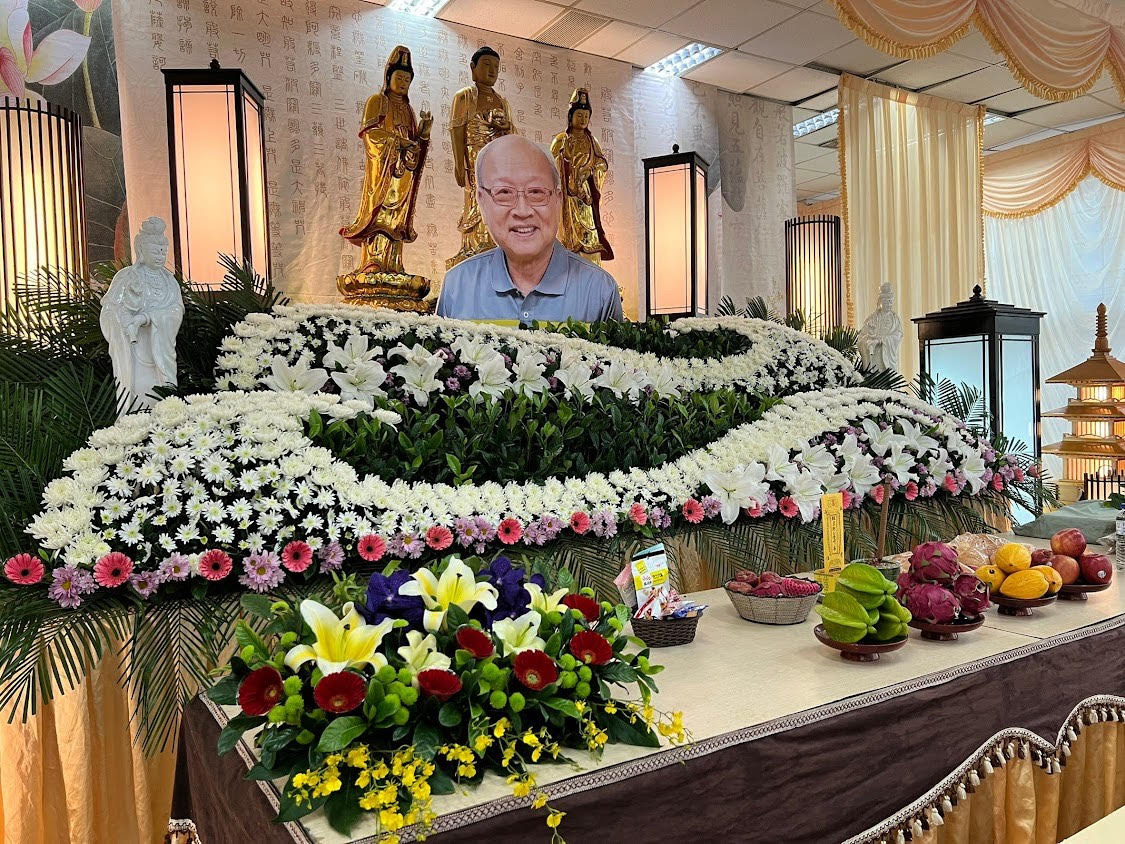
About twenty minutes in, my cousin stepped up to give a eulogy to his father. He told a short story recalling a conversation about why Beh Beh always gave money to people begging on the streets.
“They may be scammers!” my cousin had chided him. “I try not to guess their motives,” my uncle replied. “They are saying that some money can help them out. I have a few coins. Why not help them out?” This story was a great illustration of how kind his heart was. Despite all the corruption he may have seen in humanity, he still chose to act with trust and love.
With that, the funeral was over. Before leaving for the cremation site, my mom took me around to see the photo decorations. She showed me the print-out each guest had received with his obituary and a timeline of his life. I made a mental note to ask my cousin for a copy later.
Closing FaceTime, I laid flat out on the floor, soaked in tears and complex emotions. Just one thought kept ringing in my head: “That was too short.”
How could a human being with 72 years of life… a great career… father of two and grandfather of three… be fully captured in a short story and one sheet of A4 paper?
“No,” I thought to myself. “When my parents pass, I want to distribute not a paper, but a whole book. I want them to be known and remembered. Their stories will be passed on from generation to generation to come.”
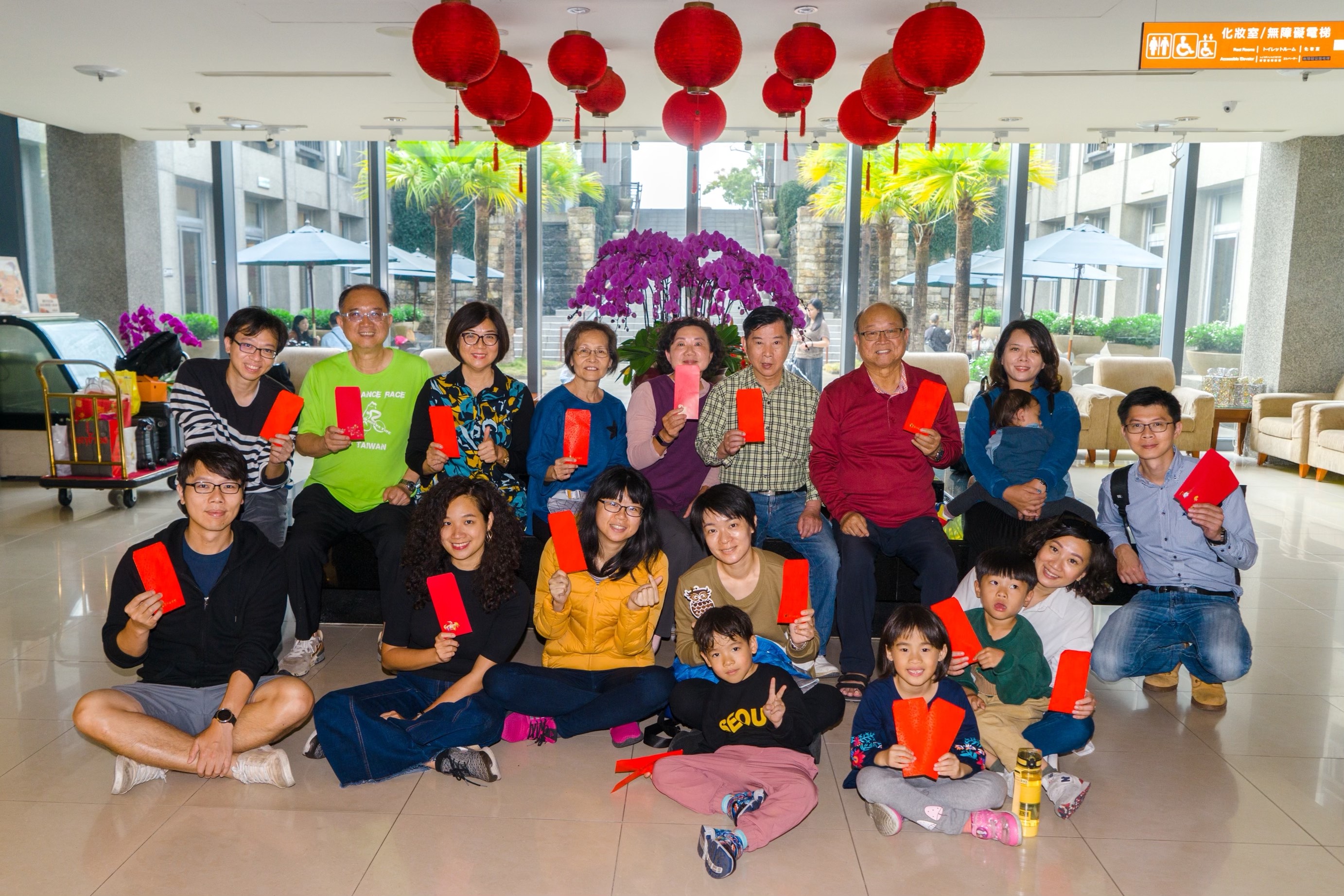
I Don’t Want to (Wait to) Say Goodbye
My mom has been ready to talk about death for awhile now.
“You know, Linda, when we pass away, you should…” But every time she tries to initiate, I immediately start crying. The very image of putting my mom in an urn utterly overwhelms me.
“No, no… not yet, not now.” End of conversation.
My uncle’s funeral was the wake-up call I never wanted, but deeply needed. He was only five years older than my dad. This year alone, my dad has also lost another sibling and moved yet another to the hospital. In his words, “death feels closer than ever.”
As uncomfortable as it feels to even write the word now, I can no longer live in denial about death. I must face its reality and muster up the courage to talk about it with my parents now, while we still have time left together.
After the funeral, my cousin told me his biggest regret: “I just wish I had asked my father more about his life.” My heart aches for him – and for future me.
I don’t want to wait until my parents pass away to say goodbye. That would be too late. I want to start saying goodbye now – a ten-year, twenty-year goodbye.
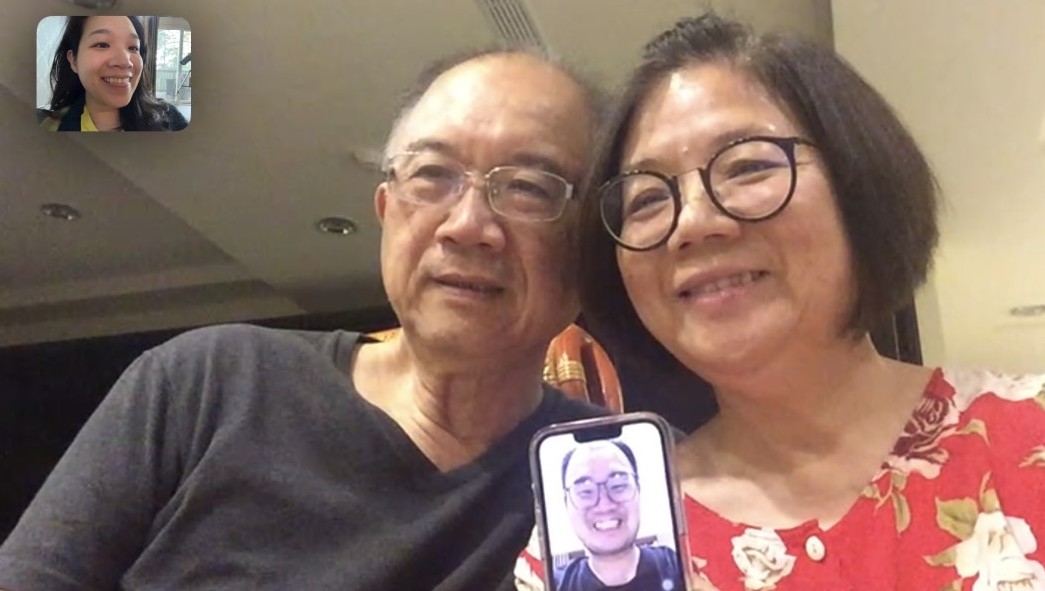
I recognize that I’ll never feel like we’ve had enough time together. It’s not like adding twenty more minutes to their eulogies would do justice. Even if I knew exactly how long my loved ones have left to live, it’s still comforting to hold onto “hopeful denial,” especially with relatives in ailing health. “You’ll get better. Just wait, we’ll go traveling again soon. No need to tell me the whole story now – you’ll live to tell your grandkids yourself!”
However, I want to be as honest as I can about the reality of our mortality. From now on, instead of wishing for more time together, I want to cherish the gift of time we have in each other’s presence right now. I want to listen to what my mom and dad have to say about how they would like to be remembered. I want to ask them:
How is it important to you that I live my life, after you die?
How do you want your grandchildren to know you?
Should we do something now so that they can know you?
How do you want me to tell your story?
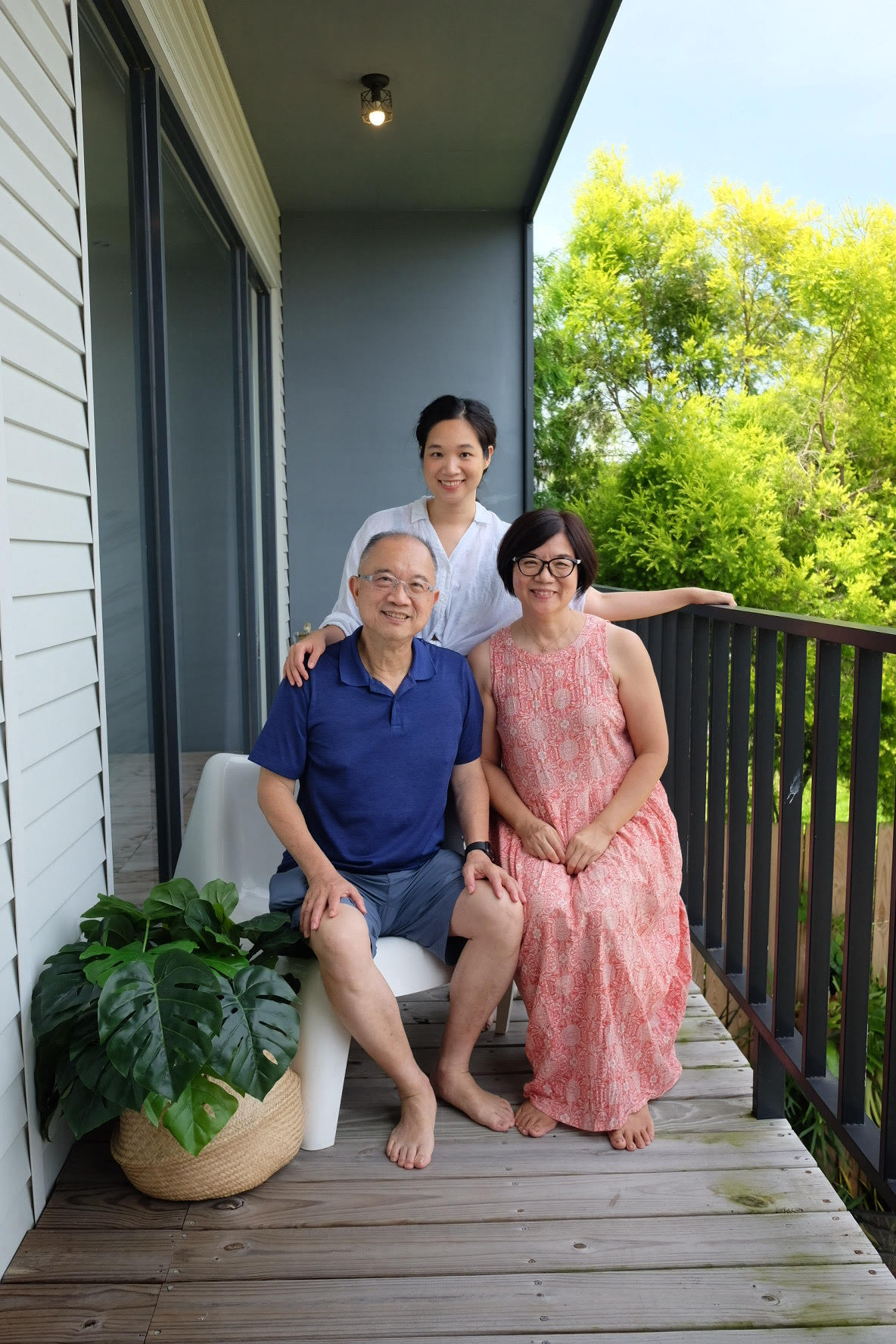
Just a Phone Call Away
“Have you ever thought about what your legacy would be?” I figured our usual Sunday morning call was as good a time as any to start asking the real questions.
“What legacy?” my dad said. “You and your brother are our legacy. The things we teach you are our legacy.”
“Yeah…” I paused. “What if you can have a bigger impact beyond us? What if your words can guide Stella, or even her kids?” Stella is my three-year-old niece – their precious granddaughter.
I then proposed an idea: “I would like to start sending you questions every week about your life stories. I will organize your answers into a book, film, or audio recording for the family. What do you think?”
My dad, being my dad, told me to wait until he sees the questions first. My mom agreed to the idea, but with one warning: she’s a very busy lady!
I gained a lot from that one conversation. Not only was I able to acknowledge the reality of their death without breaking into tears, I finally felt a wave of peace about being so far away from my parents. By doing this oral history project together, I hope that future generations of our family will be able to experience the love and connection I feel with my parents beyond our lifetimes.
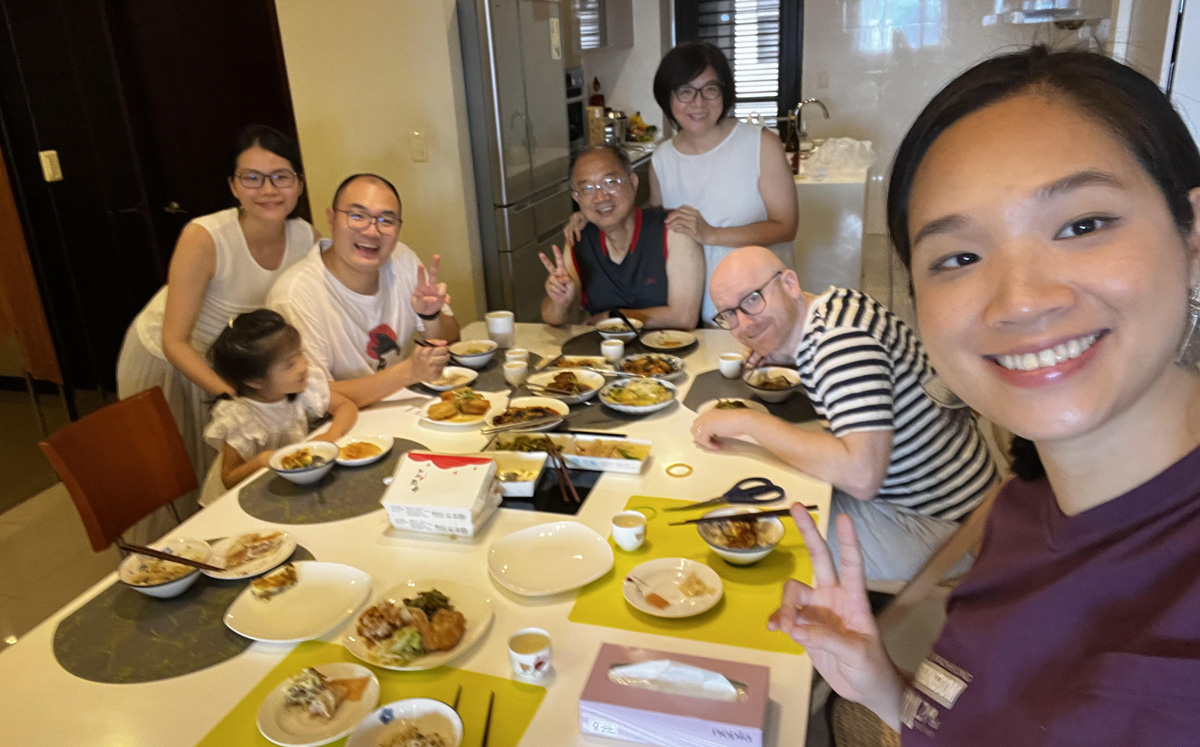
Thinking about what questions I want to ask them, I’m finding it helpful to map out a timeline of the major life decisions my parents have made. From there, I’m drawing out questions to fill in my knowledge gaps and go deeper into things I’m curious about. Like why did my dad decide to quit smoking after thirty years – and how did he manage to do it within one month? How did my mom feel about staying at home with the kids, while my dad traveled for work? How was her mental health during those years, and how did he feel about being away from home?
I still have a lot of nuances to figure out as I get the rhythm of conversation going with my parents. They are both very busy people and will probably feel awkward answering some of my questions. (How confident do you feel about your appearance? Do you like how you look? Now that you’re in your 60s, do you feel like you’re “old” or “elderly”?)
Thankfully though, they’re just a phone call away. I have nothing to lose and everything to gain by giving myself permission to express what’s on my heart and mind now. Even if you’re not sure how they’ll react, I encourage you to still reach out to your loved ones. Tell them how much they mean to you. Ask them about their lives, while they are still present in yours.
I’d like to leave you with a few resources that are helping me connect more easily with my parents. If you have a recommendation or resonate with my story in any way, I’d love to hear your tips and experiences in the comments!
- Storyworth is a subscription-based service that will email your loved ones a few questions a week, then make a book out of their answers for you. Great if you’re busy, and your parents speak English!
- Parents Are Human is a bilingual card game with questions that help spark deeper conversations with your loved ones. I love bringing it to holiday gatherings. It gets the whole family talking and sharing things we usually wouldn’t touch on!
- My China Roots is a professional team of genealogists that can help you trace your ancestry in China. I recommend inviting your parents to do a free video call with you and an MCR researcher to talk about your family history together. The folks at MCR are so helpful in asking the right questions to draw out clues that your parents may not realize are important to share. In case your parents don’t speak much English, MCR also has researchers fluent in a variety of Chinese dialects. If you’re curious about your family history, this is an easy way to involve your parents from the get go.
What helps you connect more deeply with your loved ones?
How do you feel about starting to say goodbye now?
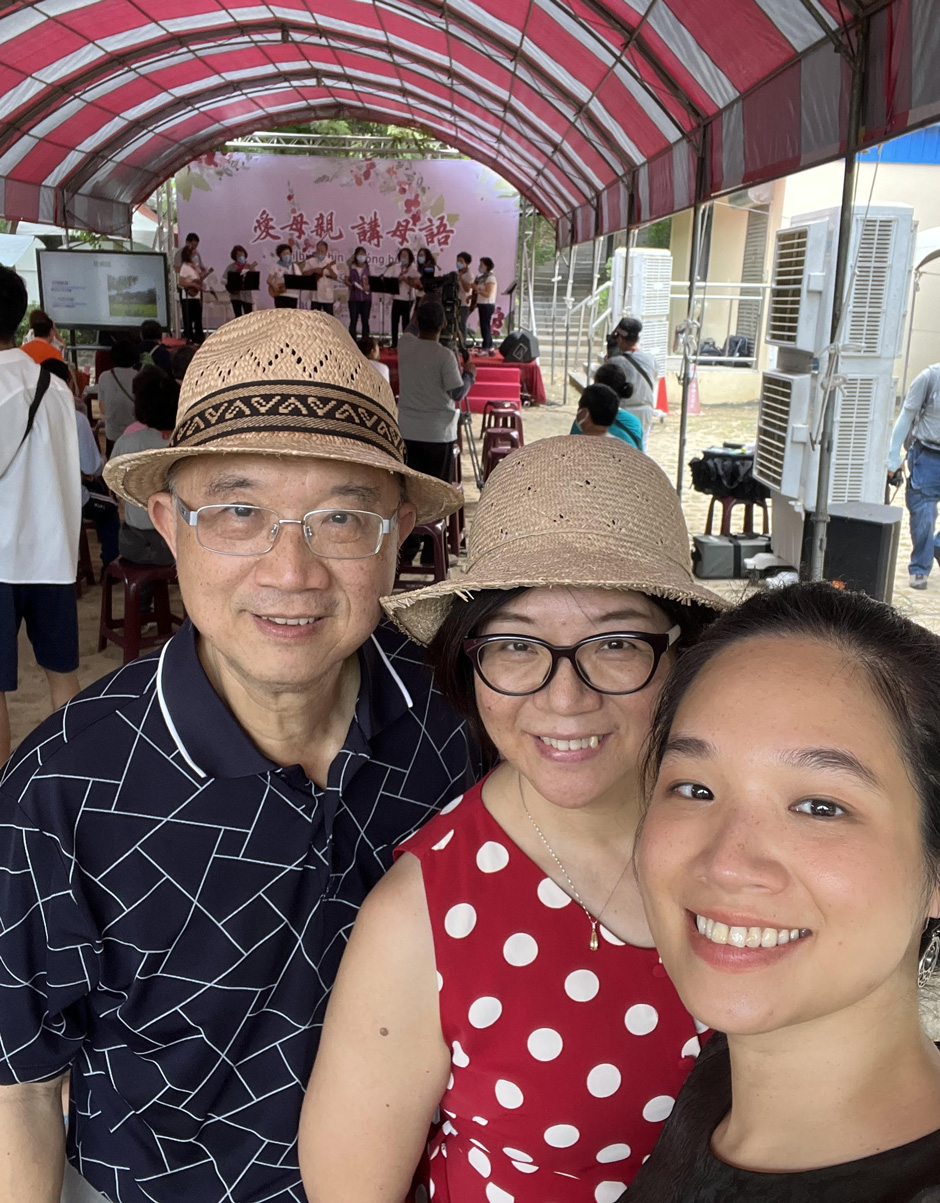
Your parents have many stories to share with you.
If you are interested in talking more with your loved ones about your family history, we would love to be of assistance. Our global team of researchers has helped hundreds of families connect their stories across generations. Get in touch to start a conversation with your family together!


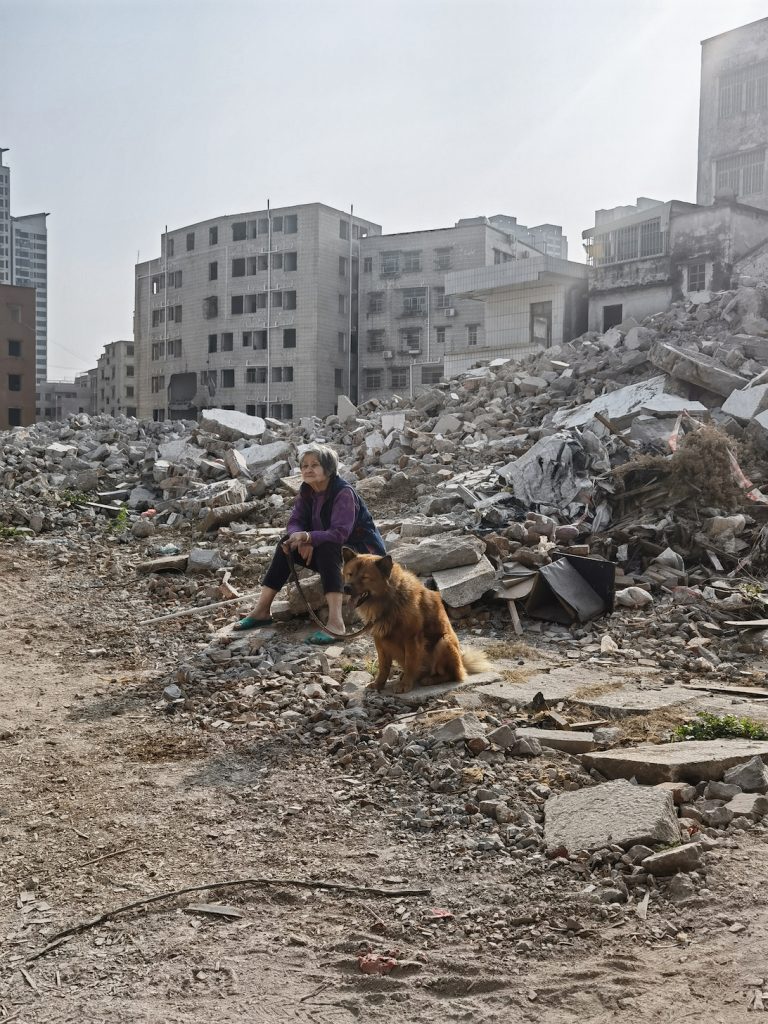
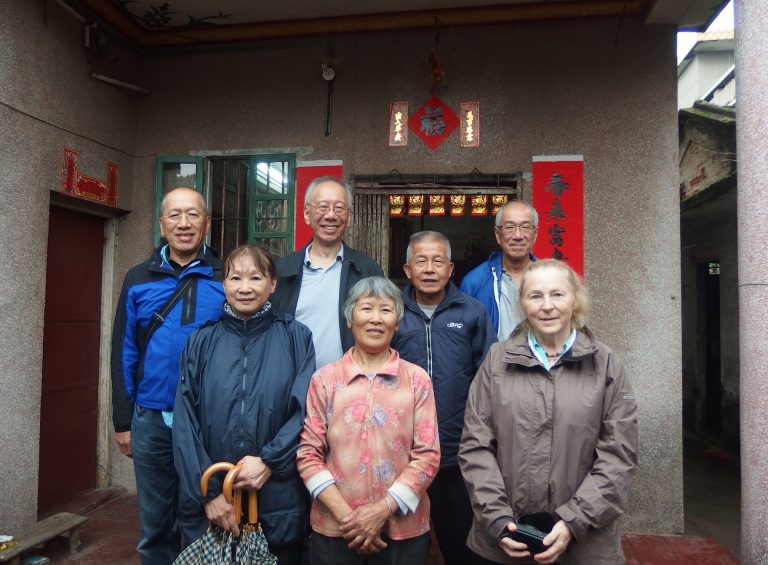
You have truly moved me. You manifest true courage for embarking on this endeavor and for generously sharing with us publicly, a gesture of profound vulnerability. Our family wishes yours the best especially in health, joy, togetherness.